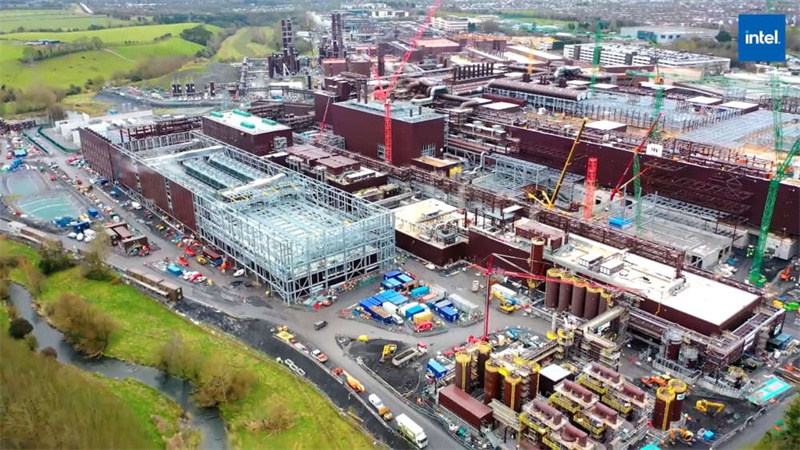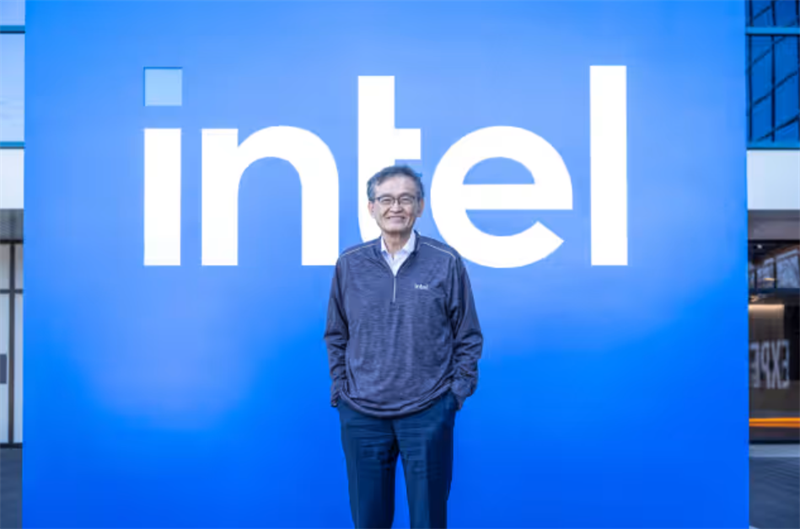Intel to Begin 3nm Chip Production at Ireland's Fab 34
Intel is set to commence mass production of 3nm chips at its Fab 34 facility in Leixlip, Ireland, later this year, marking a crucial step in its semiconductor roadmap. The Intel 3 process, the company’s second extreme ultraviolet (EUV) lithography node, boasts an 18% performance-per-watt improvement over Intel 4. Intel has confirmed in its annual report that this process will be available to foundry customers, with high-volume manufacturing already underway in Oregon and set to transition to Ireland by 2025.
The current Xeon 6 scalable server processors are manufactured using Intel 3 technology. As part of Intel Foundry Services, this process could be pivotal for the company, which has been actively seeking investors to fund its expansion. In June 2023, Intel entered into an $11 billion strategic deal with Apollo Global Management, selling a 49% stake in Fab 34 while retaining operational control.
The shift of Intel 3 production to Ireland is expected to strengthen Intel's foundry business, making Fab 34 the most advanced semiconductor manufacturing facility in Europe. Intel is also offering multiple process nodes, including Intel 4, Intel 3, Intel 18A, and previously established 7nm and 16nm technologies, to foundry clients. The company has also partnered with United Microelectronics Corporation (UMC) on a 12nm process.
Looking ahead, Intel plans to begin high-volume manufacturing of its Panther Lake processors and other customer products on the Intel 18A node in Arizona by 2025. The subsequent Intel 14A node, the company's third EUV-based process for external customers, is under active development and is expected to launch in 2026. However, Intel's wafer fabrication plant in Magdeburg, Germany, and its planned packaging facility in Poland remain on hold.

SK Hynix Completes Acquisition of Intel NAND Business
South Korea’s SK Hynix has finalized its acquisition of Intel’s NAND flash business, a process that spanned nearly four years. The $8.85 billion deal integrates Intel's NAND assets into SK Hynix’s U.S. subsidiary, Solidigm, aiming to enhance enterprise SSD research and development.
The acquisition was executed in two phases: in 2021, SK Hynix acquired Intel’s Dalian, China-based NAND manufacturing plant and SSD division for $6.61 billion, while Intel retained intellectual property, R&D, and key personnel. In 2025, SK Hynix completed the transaction with a final $2.24 billion payment, securing full ownership.Intel had struggled to gain traction in the high-performance NAND flash market, with its non-volatile memory solutions group posting consistent losses until a brief profitability period in Q2 2020. Reports indicate that Intel's NAND division lost $340 million over a 12-month span before 2020. With the acquisition completed, Solidigm is expected to drive growth and efficiency within SK Hynix’s NAND business.
SK Hynix's strategic expansion aligns with increasing enterprise SSD demand, fueled by major data center upgrades by Google and Meta. The company has also invested heavily in its Wuxi DRAM plant while consolidating its China operations by closing its Shanghai sales unit to enhance efficiency. Despite market challenges, SK Hynix posted record financial results in 2024, with total revenue reaching $46.08 billion and operating profit hitting $16.34 billion—its best annual performance to date.
In Q4 2024, the company reported $13.76 billion in revenue, a 75% year-over-year increase, and a net profit of $5.57 billion, marking a turnaround. Notably, demand for high-bandwidth memory (HBM) and enterprise SSDs surged, with HBM sales accounting for over 40% of total DRAM revenue and enterprise SSD revenue growing more than 300% year-over-year.

Intel’s New CEO Eyes AI Data Center Market
Newly appointed Intel CEO Lip-Bu Tan outlined his strategy in Intel’s annual report, stating that the company must develop competitive rack-level AI system solutions to strengthen its position in the cloud AI data center market.
Currently, NVIDIA dominates the AI data center space, holding nearly 90% of the AI chip market. Even AMD has gained traction, surpassing $5 billion in AI accelerator revenue in 2024. In contrast, Intel has struggled, falling short of its $500 million revenue goal for its Gaudi AI accelerators in 2024. Reports suggest that Intel's next-generation AI data center product, “Falcon Shores,” has been delayed, with the company shifting focus to an alternative solution, “Jaguar Shores.”
Tan is targeting NVIDIA’s top-tier GB200 NVL72 Blackwell AI system, which integrates 72 GPUs in a single server cabinet—far exceeding the previous generation’s eight-GPU configuration. An ex-Intel executive described the GB200 NVL72 as the “apex predator” of AI computing.
In a show of confidence in Intel’s future, Tan has already invested $25 million of his own funds in Intel stock within 30 days of assuming his role. The company stated that this move reflects Tan’s commitment to Intel’s success and shareholder value creation.
+86 191 9627 2716
+86 181 7379 0595
8:30 a.m. to 5:30 p.m., Monday to Friday
